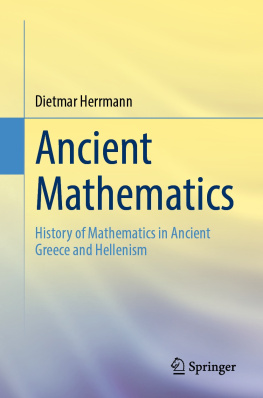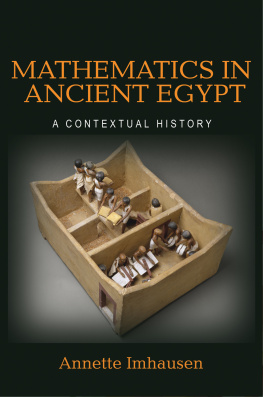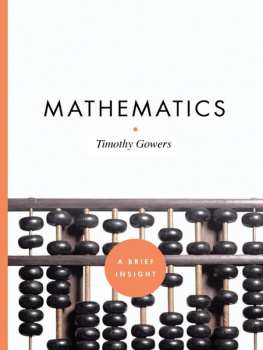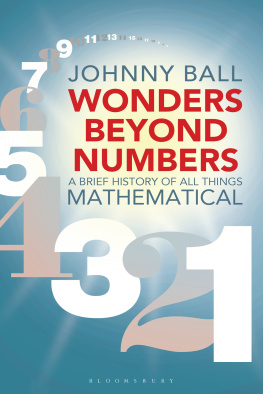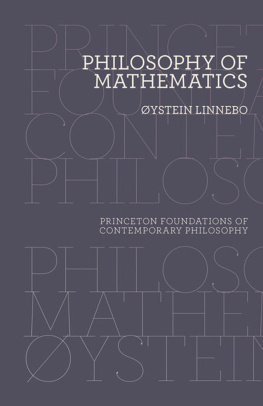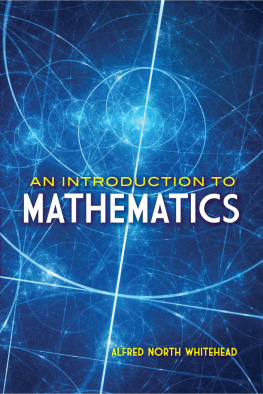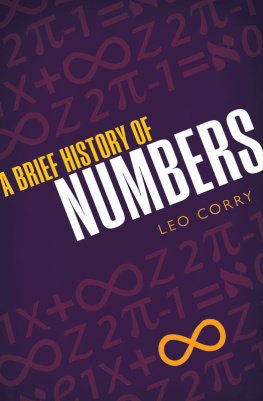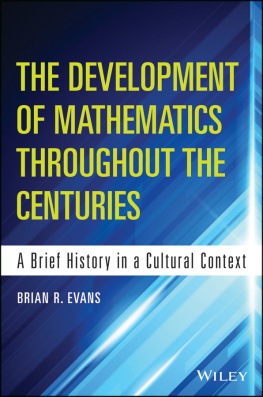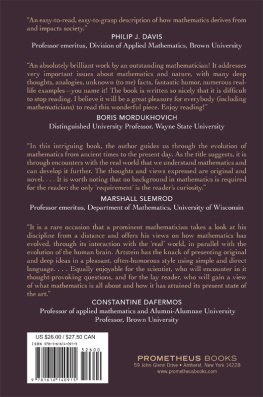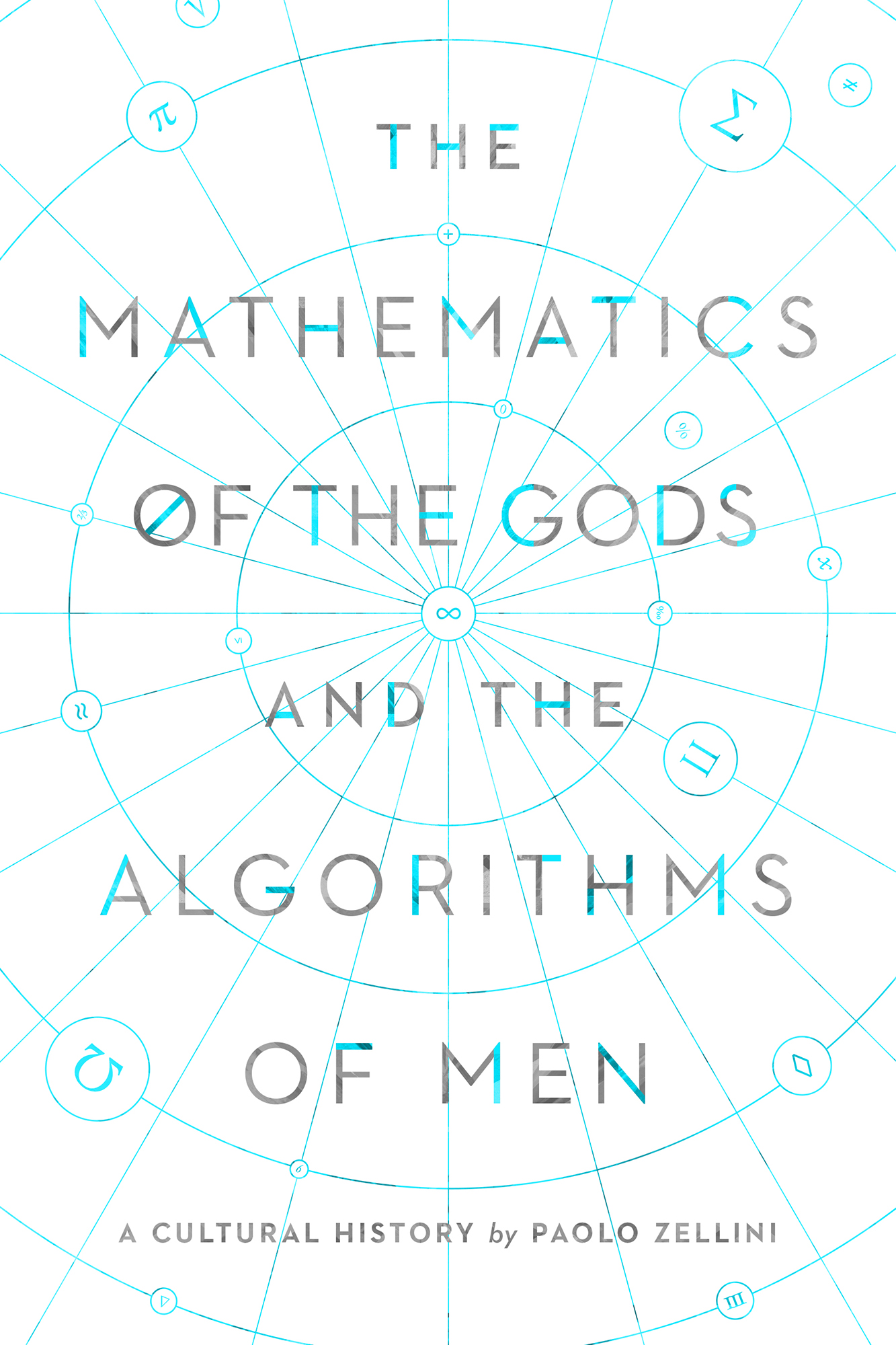Contents
Guide
ALSO BY PAOLO ZELLINI
A Brief History of Infinity
the mathematics of the gods and the algorithms of men
Pegasus Books Ltd.
148 W. 37th Street, 13th Floor
New York, NY 10018
Copyright 2020 by Paolo Zellini
First Pegasus Books edition May 2020
All rights reserved. No part of this book may be reproduced in whole or in part without written permission from the publisher, except by reviewers who may quote brief excerpts in connection with a review in a newspaper, magazine, or electronic publication; nor may any part of this book be reproduced, stored in a retrieval system, or transmitted in any form or by any means electronic, mechanical, photocopying, recording, or other, without written permission from the publisher.
Jacket design by Derek Thornton, Notch design texture I Magery: Shutterstock Images
Library of Congress Cataloging-in-Publication Data is available.
ISBN: 978-1-64313-415-4 (eBook)
Distributed by Simon & Schuster
Introduction
About which reality does mathematics speak to us? It is widely supposed that mathematicians preoccupy themselves with abstract formulas, and that it is only for inexplicable reasons that these formulas have applications in every area of science.
We conceive of immaterial entities that seem subsequently to be destined to define models of phenomena that actually occur in the world. On the one hand, there are real, present things; on the other, mathematical concepts, creations of our mind which simulate their behaviour in a more or less effective way. Ignorance of the true reason behind the descriptive power of formulas and equations certainly doesnt help to clarify the underlying motivation behind mathematical thinking. It gives currency instead to the idea that mathematicians are not inclined to engage with the world. Mathematics continues to present itself as a science that elaborates ingenious operations with rules and concepts that seem to have been conjured up with the sole aim of their being executed correctly. It matters little that some of these ideas have been suggested by the observation of natural phenomena; the operations rapidly produce advanced and complex concepts that distance themselves from observable reality and ultimately confirm the distorted image of mathematics as a merely linguistic game or a series of empty formulas.
If we turn to its remote history and to its deepest purpose, however, mathematics appears to be orientated very differently than is commonly supposed. Its origins allow us to understand that ancient arithmetic and geometry were beginning to assume the role not so much of describing or simulating real things as offering a foundation for the very reality of which they were a part. It was concrete things themselves those that were directly and immediately perceivable that were shifting and mutable, and therefore prone to appear unreal. To find precisely what removed them from such instability and evanescence, one had to look instead to numbers, to their relations and to the figures of geometry.
If we think about Zenos famous paradoxes, the number-points of the Pythagoreans and the atomists of antiquity, about Platos mathematical philosophy, the discovery of incommensurability and the significance of the concept of relationality (lgos), about Babylonian calculus and Vedic mathematics, we are faced with a great mass of knowledge designed to capture the most internal and invisible as well as the most real aspect of the things that exist in nature. The theory of numbers and of continuous mathematics elaborated in the nineteenth century presented itself as the ideal continuation of ancient Pythagoreanism, and of a vision of the world inspired by an intuition of the atomistic nature of reality. Mathematicians of the period, then, continued to contend that their symbolic constructions corresponded to very real entities, and the widespread impression was that on the success of their theories depended the foundation of knowledge that was necessary for understanding the world. When in the early twentieth century the principles of these theories became uncertain and began to undergo a critical revision, mathematics was obliged to search for the reasons that make a system of calculation genuinely concrete and reliable.
At this time a key term began to circulate persistently among mathematicians: algorithm, a word which denoted not so much an abstract formula as an actual process. This process needed to unfold in a finite number of steps, from an initial set of data to a final outcome in space and time, according to the modalities predicted by a machine. The formal definition of algorithm, based on recursion, on Turings machine or on other formulations, dates back to the fourth decade of the last century but the first indications that it would be this concept of algorithm that would inherit the sense of mathematical reality that is to say, all that mathematicians consider to be real and actual were already being witnessed in the first decade of the twentieth century, in the early signs of mathematical intuitionism and in the first arguments with which the French mathematician mile Borel confronted the semantic paradoxes and incipient crisis of fundamentals.
The science of algorithms followed a tumultuous arc of development that spanned the entire century, reaching a culmination in the formal definitions of the thirties, before bifurcating into two different but complementary trends after the construction of the first digital calculators: on the one hand, information theory, with its abstract notions of computability and of computational complexity; on the other, a science of calculus on a large scale, dedicated to resolving mathematical problems in physics, economics, engineering and computer science in purely arithmetical and numerical terms. The multiple philosophical facets of this second trend have not yet been sufficiently analysed, but it is already evident to all how much it has contributed in every area of life, to culture and social organization, with the multiplication of a diverse variety of calculation processes aimed at solving specific problems of the most varied kind.
In numerical calculation on a large scale the theoretical effectiveness of algorithms aims at achieving computational efficiency. And today it seems clear that, in order to be real, the very same mathematical entities that have been constructed through a process of calculation must be capable of being thought of in the same way as efficient algorithms. Today the efficiency depends above all on the way in which they facilitate growth in computational complexity and errors of calculation. In particular, the error depends on how rapidly the numbers grow in the course of calculation.
The reasons for the growth in the numbers are strictly mathematical and may be analysed thanks to relatively advanced theorems. But it is worth noting that the reason for this growth, in all of its aspects, was already the object of the closest scrutiny in ancient thought, and it is precisely the way in which the growth of quantities is treated in Greek geometry, in Vedic calculations and in Mesopotamian arithmetic that has contributed to the understanding of the causes of the growth of numbers in modern algorithms. The reason for this is as simple as it is surprising: some important computational schemas have remained unchanged since then, right up until the most complex strategies of which large-scale calculation avails itself today.


